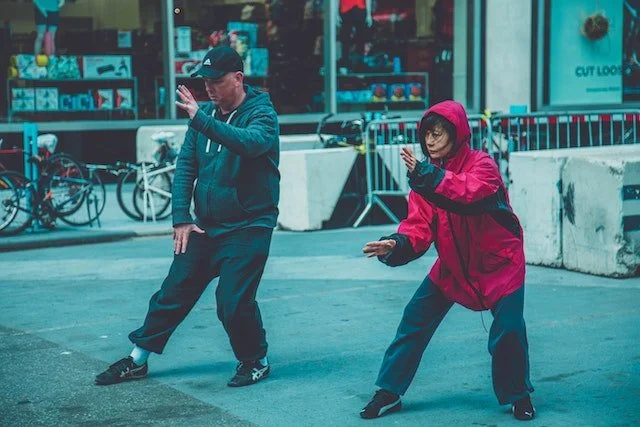Photo by Craig Adderley: https://www.pexels.com/photo/photo-a-man-and-woman-doing-martial-arts-1543932/
I recently started learning Kung Fu at a local studio. I had been interested in studying Martial Arts for a long time and had gotten into Qi Gong because of that interest. While I continue to practice Qi Gong and appreciative the meditative and energetic aspects of the practice, I also wanted to branch out to a more martial form in order to better understand the differences, but also see how one practice might comment on the other.
While I definitely have gotten that benefit from starting to study Kung Fu, what I also came to appreciate about Kung Fu were the somatic benefits of the practice. As I learn a given move and enmesh it within my body memory, what stands out to me is how the practice engages me on multiple levels of knowing and consciousness. My body consciousness is engaged when I learn how to step or move a part of my body, but my memory is also engaged, both in learning the move, but also considering how I might have applied it in different situations in my life. My emotional consciousness is also engaged and I am able to work through and release emotions with the practice.
Somatic work has become a kind of buzz phrase of late in the holistic sphere of activities, but somatic studies have been around for a long time, and whenever I learn a new form of body work I look at how I can integrate it into the existing body practices I already practice. For example with Kung Fu, one of the experiences I’ve been paying more attention to is the angle of a movement. I first learned about the angle of a movement by studying the dance disciplines of Laban, who broke movements of the body into the platonic geometric shapes and showed how a given movement could be performed with these geometries in mind.

